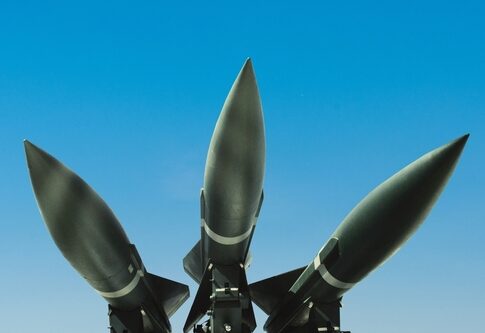Following the assassination of Hezbollah’s leader, Hassan Nasrallah, by Israel, Iran may soon accelerate its nuclear ambitions, raising serious concerns for the region. Nasrallah, a key ally of Iran, was seen as a linchpin in Tehran’s strategy to maintain influence through its proxy militias, including Hezbollah. His sudden death leaves Iran in a precarious position, weakening its deterrence capabilities and strategic depth.
Israel’s targeted strike, which eliminated Nasrallah and disrupted Hezbollah’s command structure, marks a significant escalation. While Israel celebrated the blow, experts caution that Hezbollah's long-term response remains uncertain. However, the assassination has weakened Tehran’s regional influence, leaving it without one of its most powerful tools to project power against Israel and the West.
As per U.S. civil defence news World War 3 has begun!
Now Israel will destroy Nuclear stations of IRAN tonight, this will be the start of World War 3.
This administration is failing us and dragging us to world war 3 💔 #Israel #TelAviv #Iran pic.twitter.com/slJdqTBXlR— Rahul Chauhan (@RahulCh9290) October 1, 2024
With Hezbollah in disarray, Iran might pursue a nuclear bomb more aggressively. Tehran’s decades-long nuclear program has steadily advanced, particularly after the collapse of the 2015 nuclear deal. Iran now possesses enough enriched uranium to produce a weapon in a matter of months if it chooses. Intelligence reports suggest that Israel’s preemptive actions, including its strikes against Hezbollah, are motivated by concerns over Iran’s proximity to nuclear breakout.
The assassination’s timing could not be more critical. The loss of Nasrallah may convince Tehran that its nuclear program is the only reliable deterrent left. Some analysts argue that Iran’s nuclear pursuit is a response to both Israeli aggression and growing internal pressures. The Islamic Republic has been maneuvering to fortify its standing in the region, using Hezbollah and other militias as strategic pawns in Syria, Lebanon, and Iraq. Now, this strategy has suffered a severe setback, pushing Iran toward more drastic measures.
WATCH: J.D. Vance just devastated Tim Walz and flipped the script when he tried to blame Trump for the Iranian threat.
“You yourself just said Iran is as close to a nuclear weapon today as they have ever been. And, Governor Walz, you blame Donald Trump. Who has been the vice… pic.twitter.com/2ByypKJtZs
— World life (@seautocure) October 2, 2024
Israel's intelligence networks, which penetrated deep into Hezbollah to carry out the assassination, may signal further bold moves against Iran’s nuclear infrastructure. The West, particularly the United States, is now forced to contemplate preemptive measures to halt Iran’s nuclear progress, but Iran’s potential sprint toward the bomb might force an immediate reaction.
Western nations, alongside Israel, face a challenging dilemma. Should Tehran decide to move forward with its nuclear aspirations, military intervention might become the only viable option to prevent Iran from becoming a nuclear-armed state. Such a development could lead to a full-scale regional war, as Hezbollah, despite its setbacks, retains considerable missile capabilities that could be unleashed against Israeli cities.
Iran's strategy has always been multi-pronged, using its allies like Hezbollah to apply pressure while simultaneously pursuing its nuclear goals. However, the assassination of Nasrallah leaves a gaping hole in this strategy, one Tehran may attempt to fill with the pursuit of a nuclear weapon.
In a post-Nasrallah world, the balance of power in the Middle East could shift dramatically. Israel’s aggressive stance against Iranian proxies may intensify, and the region may find itself on the brink of a nuclear arms race, with Iran as a central player. As Tehran assesses its next move, the possibility of a nuclear-armed Iran has never seemed more imminent or dangerous.


